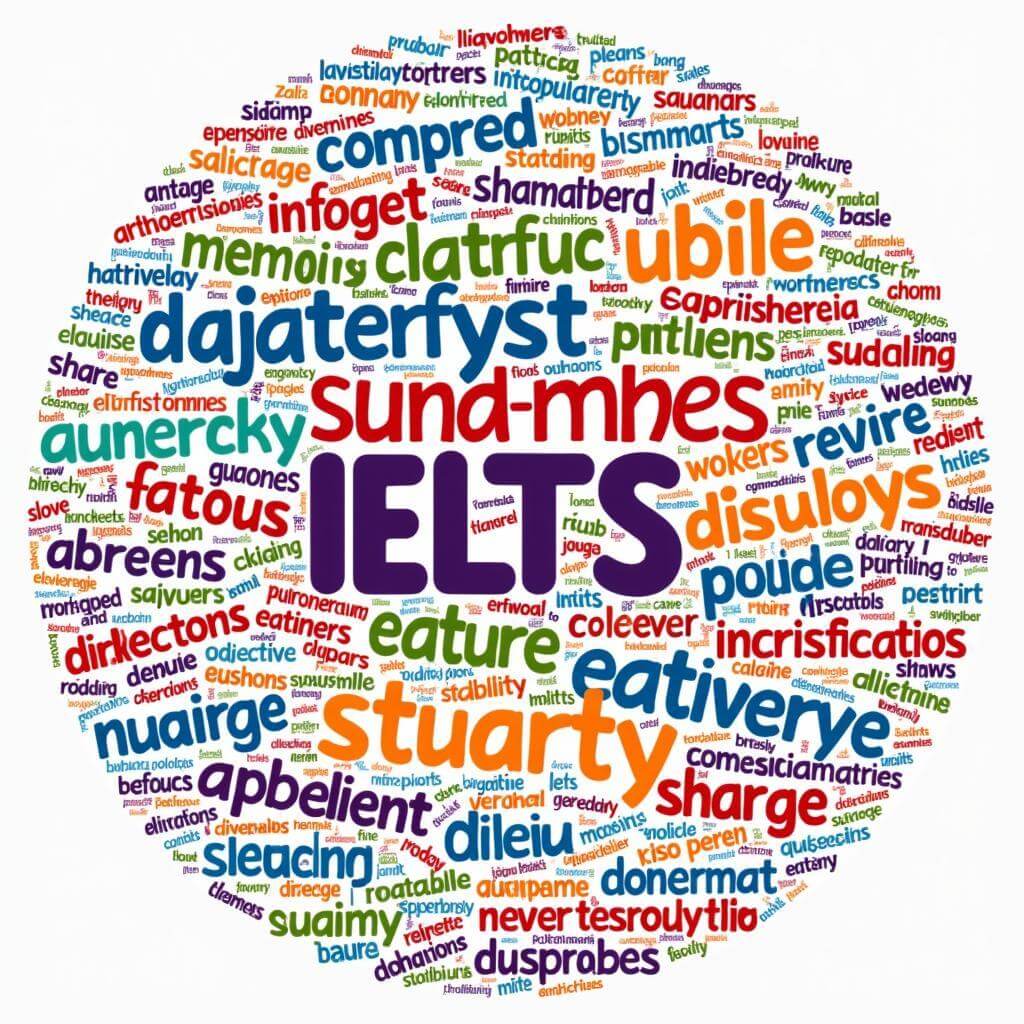Enhancing your IELTS responses with descriptive adjectives is a powerful technique to boost your scores across all sections of the exam. By incorporating vivid and precise adjectives, you can add depth, clarity, and sophistication to your answers, impressing examiners and demonstrating your language proficiency. Let’s explore how to effectively use adjectives to elevate your IELTS performance.
Why Adjectives Matter in IELTS
Adjectives play a crucial role in both the speaking and writing components of IELTS. They allow you to:
- Provide more detailed and nuanced descriptions
- Demonstrate a broader vocabulary range
- Convey your ideas more precisely
- Create more engaging and memorable responses
By mastering the art of using adjectives, you can significantly enhance the quality of your answers and potentially increase your band score.

Strategies for Incorporating Adjectives in IELTS Speaking
1. Use Descriptive Pairs
Pairing adjectives can add richness to your descriptions. For example:
- Instead of saying “It was a good experience,” try “It was an enlightening and rewarding experience.”
- Rather than “The city is big,” say “The city is sprawling and cosmopolitan.”
2. Employ Gradable Adjectives
Gradable adjectives allow you to express degrees of a quality:
- Slightly disappointed → Disappointed → Very disappointed → Devastated
- Reasonably priced → Affordable → Cheap → Dirt-cheap
3. Utilize Extreme Adjectives
Extreme adjectives can add emphasis and impact to your statements:
- Instead of “very interesting,” use “fascinating”
- Replace “very beautiful” with “stunning” or “breathtaking”
4. Practice Adjective Order
When using multiple adjectives, remember the correct order: opinion, size, age, shape, color, origin, material, purpose. For example:
- “A beautiful, large, antique, round, mahogany dining table”
Enhancing IELTS Writing with Adjectives
In the writing section, adjectives can help you create more vivid and precise descriptions, especially in Task 1 and Task 2 essays.
Tips for Task 1:
-
Use specific adjectives to describe data trends:
- “There was a sharp increase in sales” instead of “Sales went up”
- “The graph shows a gradual decline in population” rather than “The population went down”
-
Employ adjectives to compare and contrast:
- “The rural population is significantly smaller than the urban population”
- “The expenditure on healthcare is marginally higher than on education”
Tips for Task 2:
-
Use adjectives to strengthen your arguments:
- “This is a crucial issue that requires immediate attention”
- “Implementing this policy would have far-reaching consequences”
-
Incorporate adjectives to add nuance to your opinions:
- “While this approach has some merit, it is ultimately flawed”
- “The proposed solution is innovative but potentially impractical”
Common Pitfalls to Avoid
While using adjectives can greatly improve your IELTS performance, be cautious of these common mistakes:
-
Overuse: Don’t stuff your answers with unnecessary adjectives. Use them thoughtfully and purposefully.
-
Repetition: Avoid repeating the same adjectives. Showcase your vocabulary range by using synonyms.
-
Inappropriate use: Ensure your adjectives fit the context and tone of your response.
-
Neglecting other parts of speech: Remember to balance your use of adjectives with strong verbs and precise nouns.
-
Inaccuracy: Be sure you understand the exact meaning of the adjectives you use to avoid misuse.
Dr. Emma Thompson, a renowned IELTS examiner with over 15 years of experience, emphasizes, “The key to effective use of adjectives in IELTS is precision and relevance. Choose adjectives that add meaningful detail to your responses, rather than simply padding your answers with descriptive words.”
Practical Exercises to Improve Your Adjective Usage
To enhance your skills in using adjectives for IELTS, try these exercises:
-
Adjective brainstorming: Choose a common IELTS topic (e.g., environment, education) and list as many relevant adjectives as you can in one minute.
-
Upgrade your sentences: Take simple sentences and enhance them with appropriate adjectives. For example:
- Basic: “The building is tall.”
- Enhanced: “The imposing skyscraper dominates the city’s skyline.”
-
Describe images: Practice describing pictures using a variety of adjectives, focusing on different aspects like appearance, emotions, and atmosphere.
-
Synonym replacement: Take a paragraph from an IELTS-style essay and challenge yourself to replace basic adjectives with more sophisticated alternatives.
Using different speaking styles for variety can further complement your enhanced use of adjectives, creating a more dynamic and engaging response.
Conclusion
Mastering the use of adjectives to add detail in your IELTS answers is a valuable skill that can significantly improve your performance across all sections of the test. By incorporating diverse, precise, and context-appropriate adjectives, you can create more engaging, descriptive, and impressive responses. Remember to practice regularly, expand your vocabulary, and use adjectives thoughtfully to maximize their impact on your IELTS scores.
To further enhance your IELTS preparation, consider using anecdotes to expand answers and improving task 1 description skills, which complement the effective use of adjectives in creating detailed and compelling responses.
FAQ
-
How many adjectives should I use in an IELTS speaking answer?
There’s no fixed number, but aim for 2-3 well-chosen adjectives per answer to add detail without overwhelming your response. -
Can using too many adjectives negatively affect my IELTS score?
Yes, overusing adjectives can make your answers sound unnatural or forced. Focus on quality and relevance rather than quantity. -
Are there any adjectives I should avoid in IELTS?
Avoid overused or vague adjectives like “nice,” “good,” or “bad.” Opt for more specific and sophisticated alternatives. -
How can I remember new adjectives for the IELTS test?
Practice using new adjectives in context, create word association maps, and review them regularly in your study sessions. -
Is it better to use simple or complex adjectives in IELTS?
A mix of both is ideal. Use simple adjectives for clarity and complex ones to demonstrate vocabulary range, ensuring you’re comfortable with their meanings.